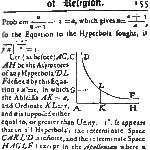
How did Tycho Brahe die?
It's been a mystery for over 400 years. 11 days after he took ill, he passed away on October 24th, 1601 and in that wake arose a host of speculations, myths, conspiracies and hypotheses.
One persistent theory, that involved both misadventure and claims of murder, was mercury; that he had self-experimented/self-medicated the mercury, or that he was poisoned.
In 2010, Brahe was exhumed from his grave in Prague and a Danish-Czech team of researchers has been working to determine the cause of his death. The results of this intensive work now make it possible to…



